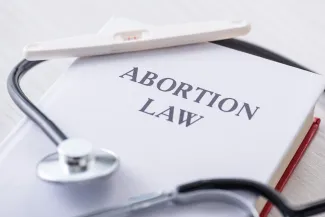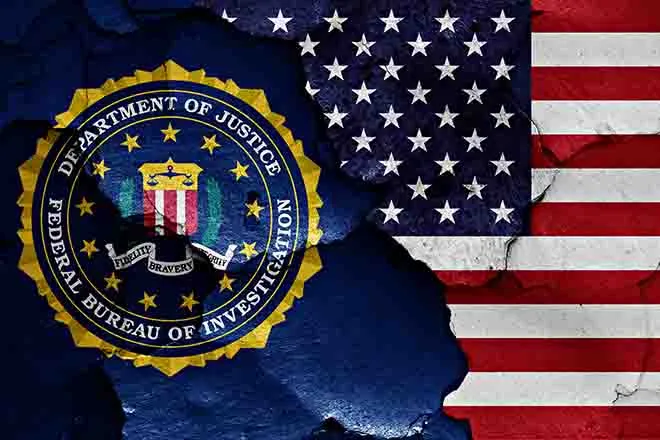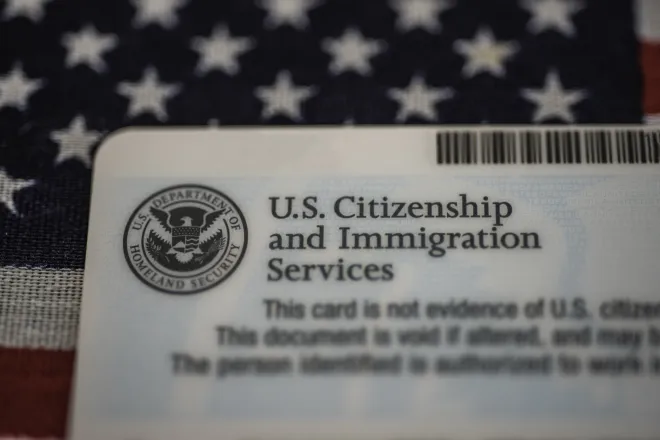
Texas man sues California doctor over mailing abortion pills
In the first federal lawsuit challenging shield laws, a Texas man has sued a California doctor over allegedly sending abortion pills to his partner.
It is the latest test of shield laws that protect doctors who prescribe abortion medication to patients in states where it’s banned. Texas bans all abortions with narrow exceptions to save a patient’s life, while California protects abortion up to fetal viability and later to save a patient’s health or life.
Skye Perryman, CEO and president of Democracy Forward, a left-leaning legal group involved in litigation about mifepristone and emergency abortion care, told States Newsroom the lawsuit underscores a long-term goal of abortion-rights opponents: to curb access to medication abortion, which has increased despite the U.S. Supreme Court’s decision to overturn Roe v. Wade three years ago.

“It shows the anti-abortion movement and allies of the administration are not stopping at Dobbs,” Perryman said. “This is an escalation of their strategy.”
Jonathan Mitchell, former Texas solicitor general, filed the lawsuit July 20 in the U.S. District Court for the Southern Division of Texas, Galveston division, on behalf of Jerry Rodriguez.
Dr. Rémy Coeytaux “purposefully and knowingly mailed abortion-inducing drugs into Texas,” the complaint states, and is accused of “aiding an illegal self-managed abortion” that led to the death of a fetus.
Neither Mitchell nor Coeytaux would comment on the record Wednesday.
Rodriguez was dating a married woman who became pregnant twice last year, and whose husband ordered abortion medication from California, according to the complaint. She became pregnant again in May, the lawsuit states, and Rodriguez is fearful her husband will pressure her into taking abortion pills.
Rodriguez is seeking more than $75,000 in damages and an injunction to prohibit the doctor from prescribing abortion medication to Texans.
Several laws are cited in the complaint, including Texas abortion statutes, a wrongful death claim and a 19th century law that abortion-rights opponents argue could be used to restrict the mailing of abortion pills.
“This is a typical approach that we see from the anti-abortion movement, and Jonathan Mitchell in particular, which is to throw all the spaghetti up the wall and to see what sticks,” Perryman said.
Mitchell is often associated with crafting the “bounty-style” six-week abortion ban that took effect in Texas in September 2021. He once represented a Galveston man who sued his ex-wife’s friend and accused them of helping her get abortion pills. He dropped the lawsuit in October, The Texas Tribune reported.

© iStock - gguy44
Laws in California, where the doctor lives, offer broad protections for providers and patients. Governor Gavin Newsom and Attorney General Rob Bonta, both Democrats, have vowed to defend California’s abortion access.
The state’s shield law, effective since January 2024, prohibits officials from delivering a person accused or charged with a crime related to providing reproductive health care to out-of-state law enforcement officials.
But California’s protections for abortion providers haven’t been tested. New York’s shield law has been a target for prosecutors in states that ban abortion.
In December, Texas Attorney General Ken Paxton filed a civil lawsuitagainst a New York abortion provider for allegedly prescribing pills to a Collin County woman. In January, a Louisiana district attorney filed criminal charges against the same doctor for allegedly sending abortion pills to a teen.
New York officials pledged to protect the physician. A county clerk in New York rejected another request from Paxton to file a judgment in the case this month.
“Our response to their baseless claim is clear: no way in hell,” Democratic Governor Kathy Hochul said in a July 14 statement. “New York won’t be bullied. And I’ll never back down from this fight.”

© iStock - BackyardProductions
Eight states, including California and New York, explicitly allow providers to prescribe abortion medication to patients in states where pregnancy termination is banned.
Rodriguez’s lawsuit is the first to challenge a shield law in federal court. Dr. Angel Foster, co-founder of the Massachusetts Medication Abortion Access Project, said telehealth abortion providers treating patients in states with bans “always envisioned that there would be legal challenges to the work that we’re doing.”
But Foster said her team remains undeterred. “You can’t put this genie back in the bottle,” she said. “Medication abortion pills are here to stay, regardless of what happens with these pills and how they’re regulated in the United States.”
Telehealth abortions make up 1 in 4 of all pregnancy terminations provided in the U.S., according to the Society of Family Planning’s #WeCount report released last month. Nearly 50 percent of all telehealth abortions provided in 2024 were overseen by doctors or other qualified health care professionals living in shield states, the report found.
Beyond challenging shield laws, Rodriguez’s argument leans, in part, on fetal personhood — the theory that fetuses and embryos should have legal rights akin to human beings — by seeking monetary damages for an aborted fetus.
Rodriguez is looking to hold the manufacturers and distributors of the abortion pills used liable “for the wrongful death of Mr. Rodriguez’s unborn child,” the lawsuit states, “and they will be added as defendants once identified.”

He’s also accusing the doctor of violating the Comstock Act of 1873, which banned the mailing of anything deemed “obscene, lewd, lascivious” or morally impure, including abortifacients and abortion-related materials. The statute was weakened in the mid-20th century, but Congress never repealed it.
Mitchell and anti-abortion activist Mark Lee Dickson have led piecemeal efforts to resurrect Comstock in cities and counties throughout Texas and New Mexico with proposed anti-abortion ordinances based on the law.
In 2022, the U.S. Department of Justice’s Office of Legal Counsel under former Democratic President Joe Biden issued a memorandum opinionthat said the U.S. Postal Service can mail abortion medication, because senders do not know they may be used unlawfully. Mifepristone and misoprostol are also used to treat miscarriages, and misoprostol is used for various reproductive health conditions, such as postpartum hemorrhaging.
Republican President Donald Trump’s administration has not said publicly whether Comstock is enforceable. In a January letter, Americans United for Life and other anti-abortion groups urged DOJ officials to rescind the memo.
Any effort to repeal Comstock would be unlikely, given the GOP’s control on Capitol Hill. But Democratic Minnesota Senator Tina Smith reintroduced a bill in March to undo parts of the law that could curb medication abortion access. The legislation has not moved beyond committee referral.
“These extreme Republicans and dust-covered laws from 1873 should not be directing a woman’s right to make her own health care decisions,” Senator John Hickenlooper, a Colorado Democrat who co-sponsors Smith’s measure, said during a call with reproductive health workers earlier this month.
Republican Missouri Senator Josh Hawley has been one of the most vocal congressional opponents of abortion pills. Hawley introduced a measurein May that would require federal health officials to reinstate older regulations on mifepristone, which would effectively stop providers from mailing abortion medication to patients.
“I’m introducing the Restoring Safeguards for Dangerous Abortion Drugs Act after a bombshell study revealed the truth about mifepristone: it’s dangerous,” Hawley said in a statement.
The paper he referenced was non-peer reviewed and released by an anti-abortion think tank, States Newsroom reported. But U.S. Health and Human Services Secretary Robert F. Kennedy Jr. did order a review of mifepristone, despite decades of evidence pointing to the drug’s safety.















